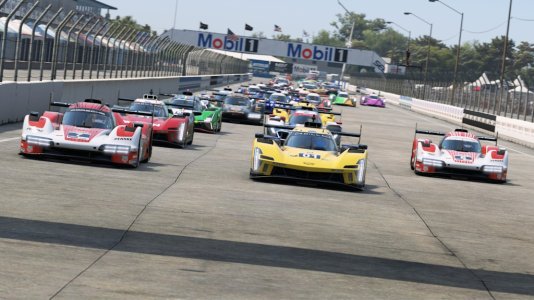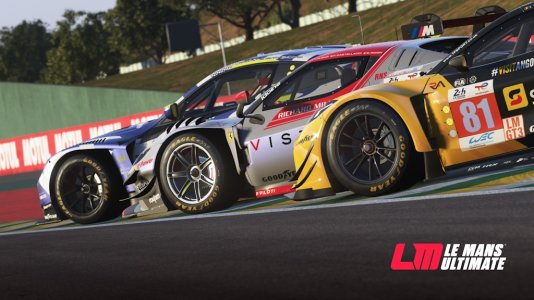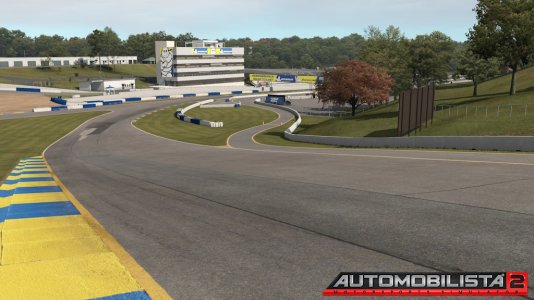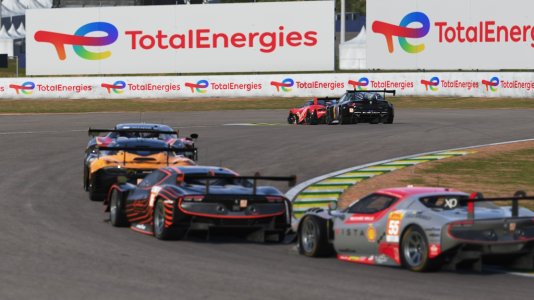The way pCARS is set up, the host does not solely determine how other get information or how much latency (mostly known as "lag") any given player will see. Networking games is very complex, and speculation that "A" causes "B" or that "A" plus "B" equals "C" is not wise unless you really know what you are talking about. For more background on gaming in multiplayer connections,
read this. Since the host has no advantage and the game continues even if the host quits, pCARS running on a "listen server" can be ruled out. We then default to peer-to-peer, which is not just one model.
This article is very tech oriented, but helpful. I suggest you read it if you really want to go in depth regarding how multi-player works. I don't profess to know all the ins and outs but a few things seem clear:
Both the
listen server and true
peer-to-peer have become somewhat obsolete for action games like racing simulators. And after you read the Gaffer article, it's clear that (in the comments) modern action games work best on dedicated servers if we are talking console gaming. This is akin to what the PC guys can do, which is essentially "rent" a server or "dedicate" a server of their own so that friends are allowed in with a password. This article explains how they go about doing this, but is also helpful (to a point) when talking about peer-to-peer. What it really means is "host -as-server peer-to-peer" which is a somewhat cannibalized combination of dedicated and peer-to-peer, with some of its own unique drawbacks. As the author describes:
player hosted games aren’t really peer-to-peer. Peer-to-peer means that each console is talking directly to each other console in the game. In a client/server game, even a player hosted client/server game, clients are only talking to the one console that is the server, not directly to each other, so a player hosted client/server game is *not* peer-to-peer. More on this later.
Dedicated servers are the best way to go, of course, but that's expensive. Forza and high end FPS games have this. pCARS and F1 do not.
So, as for lag in general, there are only two reasons we see it: 1. insufficient hardware in either the client or the server, or; 2. a poor connection between the client and server. The first can be ruled out because we cannot change it. We all have the same xbox and have to deal with the same server at SMS. The second is important. The lag article summarizes it this way:
Perhaps the most common type of lag is caused by network performance problems. Losses, corruption or jitter (an outdated packet is in effect a loss) may all cause problems, but these problems are relatively rare in network with sufficient bandwidth and no or little congestion. Instead, the latency involved in transmitting data between clients and server play a significant role. Latency varies depending on a number of factors, such as the physical distance between the end-systems, as a longer distance means additional transmission length and routing required and therefore higher latency. Routing over the Internet may be extremely indirect, resulting in far more transmission length (and consequential latency) than a direct route. In addition, insufficient bandwidth and congestion, even if not severe enough to cause losses, may cause additional delays regardless of distance. As with the hardware issues, packets that arrive slowly or not at all will make both the client and server unable to update the game state in a timely manner. Online game systems utilizing a wireless network may be subject to significant lag.
Even that is a simplification, as this
post describes pretty well. So, for instance, Peter is not seeing lag but Michael does. Usually, if everyone is lagging, then it you who is the problem, but if one car or even a few cars are/is lagging or you think you see everyone lag at one time when "X" happens, it's your connection that is the problem. That's a generalization of course, but a good starting point.
Also, consider these three variables:
1. You need to be wireless. If you are not, and you do not have at least a 4G connection, or you use other devices to connect to the same network (no matter what they are...or if the network is not secure) then you can pretty much point the finger at yourself if you experience lag. There is much agreement on that.
2. You need to do a
connection test because even if you are hardwired, ping matters. I have suggested this before, but nobody seems to want to post it. I'll post mine below. Ping is important because that's how we all connect to one another, and it's not just the host that needs a good ping rate for a gamer, but everyone who is playing also needs to have a decent rate. In other words, the game is only as good as the weakest link. That's why if everyone posts their stats, it will help determine what or who is the problem. There may be an easy solution, like simply running a wire or changing a configuration. (e.g. in Peter's video, his ping to me I see at 164, which is good but not great, but he is across the ocean after all. His ping to Michael is 154, which is virtually the same as me...good but not great, probably due to his having a good connection but compromised by distance.) If you want to check this real time, get on line and keep an eye on the number below the gamertag.
3.
Jitter and packet loss matter also, but jitter is more important. This can cause the connection to wobble or spike, as they say. To make matters worse, a player with a weak connection or packet loss can cause the host to have problems, thus affecting the whole experience for all. The summary states: "As with the hardware issues, packets that arrive slowly or not at all will make both the client and server unable to update the game state in a timely manner." Upload speed is what to look at, not so much download speed.
It's clear that we all will experience
lag when players join or leave...that's not unique to pCARS. In fact, one article says this about pCARS specifically:
In P2P, if there are many drivers in the session over long distances there might be some lag when people join or leave. It depends on their ping times as well as the hosts connection. But the severity of that depends on your connection as well as mine. The notion that everything revolves around the host and his ping rate is false. It's *your* ping rate that matters in this hybrid environment. That's why, in most leagues, you have to do a speed test (sure this can be faked) to enter. "Speed" is usually not what most people think it is when referring to games. The two Ps are important -- Packet loss and ping rate, not download or upload speed, as advertized by the cable companies etc. and seen by the end user in performance. From what I recall, it was mostly my connection (wi-fi, NAT not open, lines checked by the cable guy to ensure there are no 'spikes' in the signal historically or often) that was the issue when it came to the 360.
Bear in mind that you should test not only the connection to a local server but the connection to the largest city in your state and your country, just to get some perspective. This is because the internet routes connections to God knows where, and sometimes you don't go the direct route. Then test the connection to the host's city. Under 20 is great for local. Under 50 for country, and under 100 for international (which is very hard to achieve since routing becomes a big issue...for instance, sometimes jitter and packet loss will actually go down because your local wires are not as fast as other countries). That's ping. But jitter and packet loss are important too and you can also test them. Jitter should be in single digits. Sometimes packet loss cannot be tested due to other non-gaming related issues, but if you can, it's more you know. (Bear in mind how ping and jitter act interchangeably. If you have a great ping, then jitter becomes less important as long as it's fairly low, say around 0-4, but if you have low jitter internationally, but high ping due to distance, you will likely see others lag but you will not...and conversely, if your ping is high and your jitter is too, you will get lag and cause the lobby trouble.) Here are my numbers to local, Charlotte, and then to London.



And the jitter test:
And from what I understand, any given driver will not have issues because of the host, as long as there is a decent connection from that player to the network. Remember, it's not true peer to peer, but server based, with the host acting as the server for a peer to peer network. The nuances are important but complicated.














